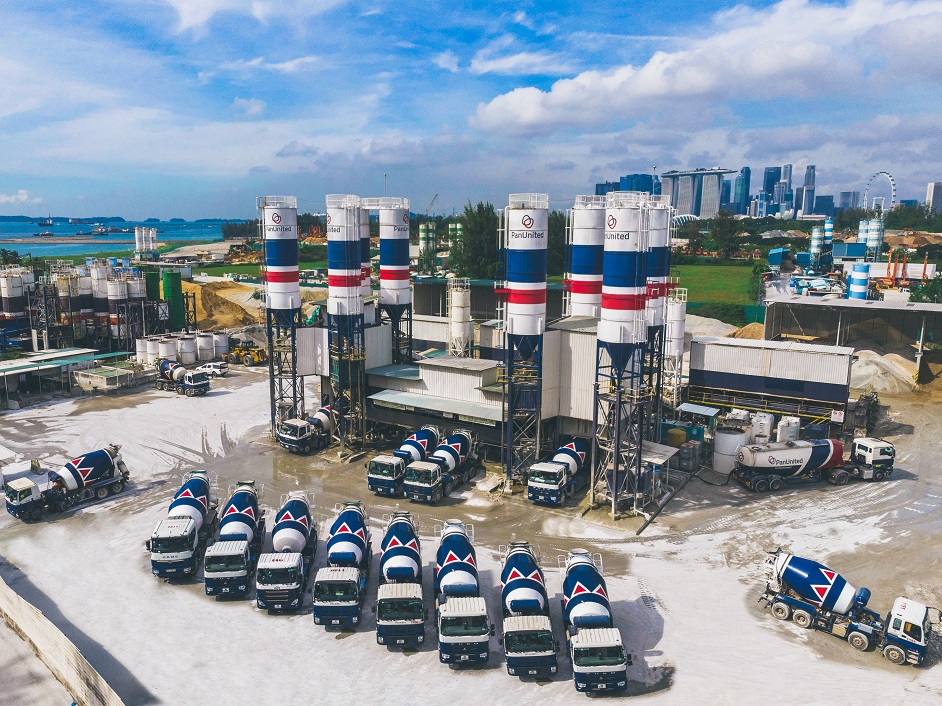
Pan-United Concrete is a subsidiary of Singapore’s largest concrete and cement provider Pan-United Corporation. Surbana Jurong is one of the largest Asia-based global urban, infrastructure, and managed services consulting firms.
The two companies say their project development partnership agreement is in line with Pan-United’s sustainability targets. These targets are to offer only low-carbon concrete by 2030, to offer carbon-neutral concrete products by 2040, and to become a carbon-neutral ready-mix concrete (RMC) company by 2050.
As part of the partnership, Surbana Jurong will study and evaluate the potential of decarbonising Pan-United’s fleet of concrete mixer trucks and tipper trucks that currently operate on diesel.
The partnership aims to achieve several outcomes, chief of which is to develop a technology roadmap based on Pan-United’s strategy and vision towards carbon abatement of its trucking fleets, as well as shortlist high-potential technologies. Surbana Jurong will also help to develop a business plan that takes into consideration the techno-economic feasibility and potential carbon dioxide savings. In addition, Surbana Jurong will make carbon footprint calculations to determine the extent of carbon emissions reduced in Pan-United’s future trucking fleet while setting the pace of transition towards net-zero emissions.
By using the cleaner energy options, Pan-United says it has the potential to significantly improve the sustainability performance of its delivery fleet. The conversion from diesel engines to electric and hydrogen powered ones in its fleet can also mitigate against potential rises in oil prices, and reflects the company’s efforts to support climate change action through the use of greener transportation services.
As a vertically integrated concrete producer, Pan-United understands the importance of minimising its supply chain contribution to energy use, greenhouse gas emissions, water consumption and waste. A key component of its supply chain is its fleet of concrete mixer and delivery tipper trucks which can make up to 7,000 trips a day across Singapore.
This is the second partnership between Surbana Jurong and Pan-United. In 2020, both parties signed a Memorandum of Understanding with two other industry leaders, Keppel Data Centres and Chevron, supported by the National Research Foundation. This alliance was aimed at jointly exploring, identifying and developing carbon capture technologies, including novel CO2 mitigation technologies that convert captured CO2 into useful construction materials.
May Ng, Pan-United’s CEO, said: “There is urgency to address global warming by all stakeholders. We recognise the benefits and importance of synergistic collaborations to effectively address it and drive the built environment towards net zero. As a key player in this sector, we are committed to invest to reduce our carbon footprint and provide low-carbon and carbon-neutral concrete products for the built environment."
Yeo Choon Chong, the CEO of Surbana Jurong’s ASEAN division, said: “We applaud Pan-United’s ambition to decarbonise its heavy vehicle fleet and are excited to contribute to its sustainability initiative by leveraging our expertise in electrification and hydrogen solutions. Partnerships are a key method of accelerating our collective efforts to build for a safe, sustainable and resilient future for all.”














